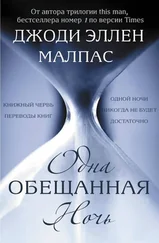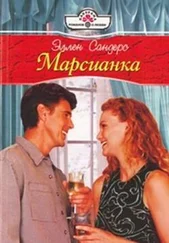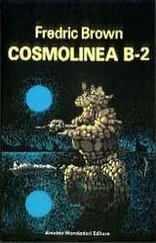Эллен Глазгоу - Barren Ground
Здесь есть возможность читать онлайн «Эллен Глазгоу - Barren Ground» весь текст электронной книги совершенно бесплатно (целиком полную версию без сокращений). В некоторых случаях можно слушать аудио, скачать через торрент в формате fb2 и присутствует краткое содержание. Жанр: Классическая проза, на английском языке. Описание произведения, (предисловие) а так же отзывы посетителей доступны на портале библиотеки ЛибКат.
- Название:Barren Ground
- Автор:
- Жанр:
- Год:неизвестен
- ISBN:нет данных
- Рейтинг книги:3 / 5. Голосов: 1
-
Избранное:Добавить в избранное
- Отзывы:
-
Ваша оценка:
- 60
- 1
- 2
- 3
- 4
- 5
Barren Ground: краткое содержание, описание и аннотация
Предлагаем к чтению аннотацию, описание, краткое содержание или предисловие (зависит от того, что написал сам автор книги «Barren Ground»). Если вы не нашли необходимую информацию о книге — напишите в комментариях, мы постараемся отыскать её.
Barren Ground — читать онлайн бесплатно полную книгу (весь текст) целиком
Ниже представлен текст книги, разбитый по страницам. Система сохранения места последней прочитанной страницы, позволяет с удобством читать онлайн бесплатно книгу «Barren Ground», без необходимости каждый раз заново искать на чём Вы остановились. Поставьте закладку, и сможете в любой момент перейти на страницу, на которой закончили чтение.
Интервал:
Закладка:
"Perhaps she'll pick up when the spring comes," she added when he did not reply.
Nathan shook his head and swallowed as if a pebble had lodged in his throat. "That's what I'm hoping," he answered. "If she can just get on her feet again. There's nothing this side of heaven I wouldn't do to make her well."
For an instant she was afraid he would break down; but while she wondered what on earth she could say to comfort him, he turned back to the boxes. "I must get this place tidied up before night," he said in his usual tone, with the flat, dry cough which had become chronic.
While she watched him, Dorinda threw the shawl back on one arm and revealed her fine dark head. The heavy eyebrows and the clear stern line of her features stood out as if an edge of light had fallen over them, leaving the rest of her face in shadow. She was wearing an old tan ulster, faded and patched in places, and beneath the hem her brown calico dress and mud-stained country shoes were visible. Even at Pedlar's Mill the changing fashions were followed respectfully, if tardily, and in the middle 'nineties women walked the muddy roads in skirts which either brushed the ground or were held up on one side. But shabbiness and a deplorable fashion could not conceal the slim, flowing lines of her figure, with its gallant and spirited carriage.
"I'm going to say a word or two to Rose Emily before I start," she said in a cheerful voice. "I don't mind being late." Walking to the end of the store, beyond the wood stove, which felt like a furnace, she pushed back a curtain of purple calico, and turned the knob of a door. Inside the room a woman was sitting up in bed, crocheting a baby's sacque of pink wool.
"I thought you'd gone, Dorinda," she said, looking up. "The snow is getting thicker."
Propped up among her pillows, winding the pink wool through her fragile hands, Mrs. Pedlar faced death with the courage of a heroic illusion. Before her marriage, as Rose Emily Milford, she had taught school in the little schoolhouse near Pedlar's Mill, and Dorinda had been her favourite pupil. She was a small, intelligent-looking woman, pitiably thin, with prominent grey eyes, hair of a peculiar shade of wheaten red, and a brilliant flush on her high cheek bones.
Ball after ball of pink wool unwound on the patchwork quilt, and was crocheted into babies' sacques which she sold in the city; but crocheting, as she sometimes said, "did not take your mind off things as well as moving about," and it seemed to her that only since she had been ill had she begun to learn anything about life. The nearer she came to death, the more, by some perversity of nature, did she enjoy living. If death ever entered her mind, it was as an abstraction, like the doctrine of salvation by faith, never as a reality. Every afternoon she said, "If it is fine, I shall get up to-morrow." Every morning she sighed happily, "I think I'll wait till the evening."
The room was a small one, divided off from the brick store, which adjoined the new frame house Nathan had built for his bride; and there was a confusion of colour, for Mrs. Pedlar's surroundings reflected the feverish optimism of her philosophy. The rag carpet and the patchwork quilt were as gay as an autumn flower-bed; the kerosene lamp wore a ballet skirt of crimson crepe paper; earthen pots of begonias and geraniums filled the green wooden stands at the windows. On the hearthrug, before the open fire, three small children were playing with paper dolls, while the fourth, a baby of nine months, lay fast asleep in his crib, with the nipple of a bottle still held tight in his mouth.
"I'm glad I chose that orange colour for your shawl," said Mrs. Pedlar, in the excited manner that had come upon her with her rising temperature. "It goes so well with your black hair. You ought to be glad you're a big woman," she continued thoughtfully. "Somehow life seems to go easier with big women. I asked young Doctor Greylock if that wasn't true, and he said small women seemed to think so."
Dorinda laughed, and her laughter contained a thrill of joy. Some inward happiness had bubbled up and overflowed into her voice, her look, and her shy dreaming movements. There was sweetness for her in hearing of Jason Greylock; there was ecstasy in the thought that she might meet him again in the road. Yet the sweetness and the ecstasy were thin and far off, like music that comes from a distance. It seemed incredible that anything so wonderful should have happened at Pedlar's Mill.
In front of the fire, the three children (Minnie May, the eldest, was only ten) were busy with their paper dolls. They had made a doll's house out of a cracker box, with the frayed corners of the rug for a garden. "Now Mrs. Brown has lost her little girl, and she is going to Mrs. Smith's to look for her," Minnie May was saying impressively.
"You've got your hands full with those children," remarked Dorinda because she could think of nothing else that sounded natural. Her mind was not on the children; it was miles away in an enclosed garden of wonder and delight; but some casual part of her was still occupying her familiar place and living her old meaningless life.
"Yes, but they're good children. They can always amuse themselves. Minnie May cut those paper dolls out of an old fashion book, and the younger children are all crazy about them."
"Minnie May is a great help to you."
"Yes, she takes after her father. Nathan is the best man that ever lived. He never thinks of himself a minute."
"He gave me some sugar for Ma," Dorinda sighed as she answered, for the thought had stabbed through her like a knife that Rose Emily was dying. Here we are talking about sugar and paper dolls when she won't live through the summer.
"There's a pat of butter too," said Rose Emily. "I told Minnie May to put it in your basket. I don't see how your mother manages without butter."
"We've had to do without it since our cow died last fall. I'm saving up, after the taxes are paid, to buy one in the spring." Again the thought stabbed her. "As if cows made any difference when she has only a few months to live!" Were the trivial things, after all, the important ones?
"And Mrs. Brown found that her little girl had been run over and killed in the middle of the road," Minnie May whispered. "So she decided that all she could do for her was to have a handsome funeral and spend the ten dollars she'd saved from her chicken money. That's the graveyard, Bud, down there by the hole in the rug. Lena, stop twistin', or you'll pull it to pieces."
"Nathan says you can get a good cow from old Doctor Greylock for thirty dollars," said Mrs. Pedlar. "He's got one, that Blossom of his, that he wants to sell." Then an idea occurred to her and she concluded doubtfully, "Of course, everything may be changed now that Jason has come back."
"Yes, of course, everything may be changed," repeated Dorinda, and the words, though they were merely an echo, filled her with happiness. Life was burning within her. Even the thought of death, even the knowledge that her friend would not live through the summer, passed like a shadow over the flame that consumed her. Everything was a shadow except the luminous stillness, which was so much deeper than stillness, within her heart.
"He is just the same pleasant-mannered boy he used to be when I taught him," resumed Mrs. Pedlar. "You remember how mischievous he was at school."
Dorinda nodded. "I was only there a year with him before he went away."
"Yes, I'd forgotten. I asked him to-day if he remembered you, and he said he knew you as soon as he saw you in the road this morning." She paused for an instant while a vision flickered in her eyes. "It would be nice if he'd take a fancy to you, Dorinda, and I'm sure you're handsome enough, with your blue eyes and your high colour, for anybody to fall in love with, and you're better educated, too, than most city girls, with all the books you've read. I sent Minnie May to find you while he was here, but she brought Nathan instead; and the doctor had to hurry off to old Mrs. Flower, who is dying."
Читать дальшеИнтервал:
Закладка:
Похожие книги на «Barren Ground»
Представляем Вашему вниманию похожие книги на «Barren Ground» списком для выбора. Мы отобрали схожую по названию и смыслу литературу в надежде предоставить читателям больше вариантов отыскать новые, интересные, ещё непрочитанные произведения.
Обсуждение, отзывы о книге «Barren Ground» и просто собственные мнения читателей. Оставьте ваши комментарии, напишите, что Вы думаете о произведении, его смысле или главных героях. Укажите что конкретно понравилось, а что нет, и почему Вы так считаете.










![Эллен Дедженерес - Кроме шуток [Как полюбить себя, продать дуршлаг дорого, прокачать мозг с помощью телешоу и другие истории от Эллен Дедженерес] [litres]](/books/384873/ellen-dedzheneres-krome-shutok-kak-polyubit-sebya-p-thumb.webp)

